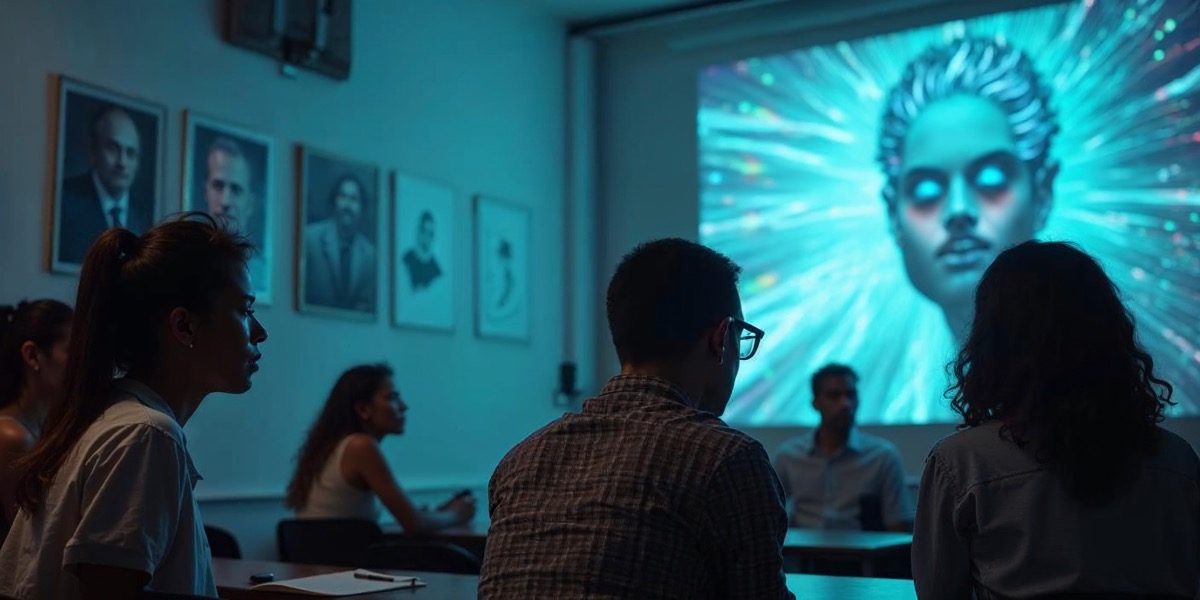Find out if ChatGPT rivals humans in poetry. An intriguing study calls into question the creativity of AI versus traditional human art.
Have you ever wondered if a artificial intelligence could surpass humans in terms of poetic creativity While the question seems to belong to science fiction, some recent research could overturn our certainties about the capacity of machines to imitate human art. With the rise of models such as ChatGPT, a new study highlights results that could change our perception of role of AI in artistic creation.

A study that challenges our certainties
The idea that artificial intelligence could match or even surpass humans in poetic creation seems, at first glance, somewhat absurd. However, a study conducted by researchers at the University of Pittsburgh is challenging this perspective. They brought together a large panel of participants to evaluate a selection of poems, some from great writers such as William Shakespeare, and others generated by ChatGPT, modeled to mimic their styles.
The surprising results of a subjective assessment
The experiment, involving 1,634 participants, featured ten poems, evenly split between human creations and those generated by ChatGPT. Without prior information about the origin of the writings, the participants struggled to distinguish between the two. Even more strikingly, many of them believed the AI poems were written by human authors.
An intriguing preference for AI poems
The study also engaged a second group of 696 participants to rate the poems based on fourteen criteriaincluding emotion, the rhythm and originalityThe results show a preference for AI-generated poems when participants were unaware of their true origin. This raises pertinent questions about what makes a work not only aesthetically pleasing, but perceived as authentically human.
Why does AI seduce through poetry?
One of the reasons why ChatGPT is successful in misleading human judgment resides in the simplicity and theaccessibility of his creations. When we expect a work to be complex and profoundthis artificial simplification tends to seduce because it communicates emotions in a direct and immediate way.
A revealing preference paradox
The researchers noted that, paradoxically, even when they knew they should prefer human works, participants often felt more attracted to the clarity and the comprehensibility poems by ChatGPT. This suggests that human perception of artistic quality is influenced by a conjunction of simplicity and apparent depth.
The question of true creativity
Yet this study also raises fundamental questions about AI's ability to be truly creative. Does the mere stylized, algorithmic reproduction of human works amount to creativity? Or is AI merely a reflection, an intelligent imitation devoid of the ability to innovate and to feel ?
The impact of AI on art and culture
The potential impact of AI on art and culture extends beyond simple poetic imitation. As AI becomes more sophisticated and its ability to generate literary works increases, questions arise about their artistic integrity and their value in our society.
Towards a redefinition of art?
L'increasing use of AI Could the impact of art creation redefine our understanding of art? If a machine can produce a poem that is judged to be better than that of a great poet, this potentially transforms our perception of what constitutes a "work of art." We could envision a future where the boundaries between art human and artificial become blurred, calling into question our appreciation of originality and authenticity.
The ethical and philosophical implications
The impact of AI on artistic creation is not just a question of literary quality, but also a revolution in our ethical reflection and philosophicalArtists and critics face debates over intellectual property, authenticity, and the role of AI in cultural expression.
Conclusion: rivalry or complementarity?
The question of whether ChatGPT is a better poet than humans should not be interpreted as a direct competition. Rather, it is a reflection on how technologies can complete and enrich our artistic practices. AI, far from replacing human creators, could offer new perspectives and inspire innovative approaches in literature.
A partnership for the future of poetry
By considering AI as a potential ally, poets and artists could find ways to dialogue and co-create with these technologies, leading to a future where art will encompass both the human nature and artificial ingenuity. Eventually, the true essence of poetry—the unique expression of human experience—will continue to come from the inimitable richness of our sensitivity and our imagination.
